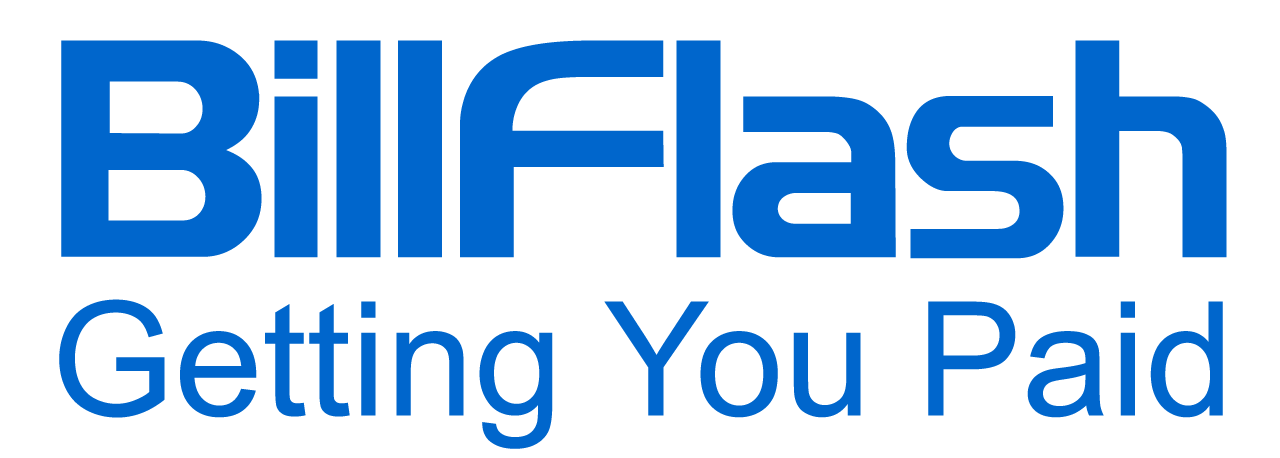Discover the ins and outs of what a self pay patient is from pros and cons to navigating payments in this comprehensive article.
In today's complex healthcare landscape, the term “self pay patient” has gained increased attention and significance. This article aims to provide a comprehensive explanation of what it means to be a self pay patient, including the factors influencing this decision and how to navigate the healthcare system effectively. By understanding the concept of a self pay patient and weighing the pros and cons, individuals can make informed decisions about their healthcare options.
Understanding the Concept of a Self Pay Patient

The definition and basic overview of a self pay patient are essential to grasp the concept fully. A self pay patient refers to an individual who pays for their healthcare services out-of-pocket, without relying on insurance coverage or government assistance programs. This means that all medical expenses are borne directly by the patient.
Definition and Basic Overview
Being a self pay patient involves taking personal financial responsibility for healthcare costs. This can include doctor visits, diagnostic tests, medications, and hospital stays, among other services. Essentially, it is a means of bypassing traditional insurance systems and directly engaging with healthcare providers.
When a person chooses to be a self pay patient, they are essentially opting to forego the financial protection and assistance that insurance coverage provides. Instead, they take on the full burden of paying for their healthcare services, often negotiating prices and seeking out the most cost-effective options. This can be a daunting task, as healthcare costs can be exorbitant, but it also allows for greater transparency and control over one's healthcare decisions.
Self pay patients often have to carefully budget and plan for their medical expenses. They may set aside a certain amount of money each month specifically for healthcare costs or create a separate savings account dedicated to medical emergencies. This level of financial responsibility requires discipline and foresight, as unexpected medical expenses can quickly deplete one's savings.
The Rise of Self Pay Patients
In recent years, there has been a noticeable increase in the number of self pay patients. This rise can be attributed to several factors, including individuals who are uninsured, underinsured, or choose to forgo insurance due to high premiums. The rising costs of healthcare and the complexities of insurance systems have also contributed to the growing popularity of self pay arrangements.
For many uninsured or underinsured individuals, becoming a self pay patient is often a more affordable option than paying for insurance premiums that may not adequately cover their healthcare needs. By directly paying for services, they can negotiate prices with healthcare providers and potentially save money in the long run. Additionally, some people opt for self pay arrangements in order to have more control over their healthcare decisions and access alternative treatment options.
Self pay patients also have the freedom to choose their healthcare providers without restrictions imposed by insurance networks. They can seek out specialists or alternative medicine practitioners that may not be covered by insurance plans. This flexibility allows individuals to explore different treatment options and tailor their healthcare to their specific needs and preferences.
However, it is important to note that being a self pay patient does come with certain risks. Without the safety net of insurance coverage, individuals may face significant financial burdens in the event of a major medical emergency or chronic illness. It is crucial for self pay patients to carefully consider their healthcare needs, budget, and potential risks before making the decision to forgo insurance coverage.
The Pros and Cons of Being a Self Pay Patient
Like any healthcare choice, becoming a self pay patient comes with both advantages and potential drawbacks. Understanding these factors is crucial in determining whether this path is the right one for you.
When it comes to the advantages of being a self pay patient, there are several key points to consider. One of the primary advantages is the ability to have greater control over healthcare choices. Without insurance constraints, individuals can consult the healthcare provider of their choice and explore alternative treatments or therapies. This means that self pay patients have the freedom to seek out the healthcare professionals who align with their personal preferences and beliefs.
Another advantage of being a self pay patient is the potential for shorter wait times. In many cases, individuals with insurance may face longer wait times due to the administrative processes involved. However, self pay patients often experience shorter wait times, leading to quicker access to care. This can be especially beneficial for those who require immediate medical attention or have time-sensitive conditions.
While being a self pay patient offers flexibility and control, it also involves financial risks. Without insurance coverage, medical expenses can quickly accumulate, creating a potential burden for individuals with limited financial resources. It is important for self pay patients to carefully consider their financial situation and plan accordingly to ensure they can afford the necessary healthcare services.
In addition to the financial risks, self pay patients may also face challenges in accessing certain specialized services that require insurance participation. Some healthcare providers or facilities may only accept patients with insurance, limiting the options available for self pay patients. This can be particularly problematic for individuals who require specialized care or treatments that are not widely available.
Factors Influencing the Decision to Become a Self Pay Patient

Before deciding to become a self pay patient, it is essential to consider various factors that can influence this decision. These factors primarily revolve around financial considerations and access to healthcare services.
Financial Considerations
When contemplating self pay status, evaluating financial considerations is crucial. This entails assessing one's ability to cover anticipated healthcare expenses, including routine care, emergencies, and potential future medical needs. It may be beneficial to create a budget and establish an emergency fund specifically designated for healthcare expenses.
Financial considerations go beyond simply having the means to pay for healthcare services. It is important to take into account the potential impact on one's overall financial well-being. Becoming a self pay patient means shouldering the full cost of medical care, which can be significantly higher compared to those covered by insurance. This can potentially lead to financial strain and the need to make difficult decisions regarding other aspects of one's life, such as housing, education, or retirement savings.
Additionally, the availability of healthcare financing options should be considered. Some individuals may be able to secure medical loans or payment plans to help manage the cost of self pay healthcare. Exploring these options and understanding the associated terms and interest rates can provide a clearer picture of the financial implications of becoming a self pay patient.
Access to Healthcare Services
Another factor to consider is access to healthcare services. Before opting for self pay status, individuals should research the availability of providers and specialists who accept direct payments. It is important to ensure that desired healthcare services are accessible within a reasonable distance and that healthcare providers are willing to negotiate fees.
Access to healthcare services can also be influenced by geographic location. In some areas, there may be a limited number of healthcare providers who accept self pay patients, making it more challenging to find the necessary care. This can be particularly problematic for individuals with specific medical conditions or those in need of specialized treatments.
Furthermore, understanding the quality of care provided by self pay healthcare providers is crucial. Researching the reputation and credentials of healthcare professionals can help ensure that the care received is of the highest standard. Reading reviews and seeking recommendations from trusted sources can provide valuable insights into the quality and effectiveness of self pay healthcare services.
Lastly, it is important to consider the potential impact on continuity of care. If an individual has an existing relationship with a healthcare provider who does not accept self pay patients, transitioning to self pay status may require finding a new provider. This change can disrupt the continuity of care and may result in the need to establish a new medical history and build trust with a different healthcare professional.
Navigating the Healthcare System as a Self Pay Patient
For self pay patients, understanding how to navigate the healthcare system can be a valuable skill. By familiarizing themselves with medical costs and negotiating with healthcare providers, individuals can make informed decisions and potentially reduce expenses.
Understanding Medical Costs
One of the biggest challenges for self pay patients is understanding medical costs. It is crucial to inquire about the price of services beforehand and explore options for cost-effective alternatives. Additionally, patients can review itemized bills and dispute any ambiguous charges to avoid unnecessary expenses.
Negotiating with Healthcare Providers
Effective negotiation skills can greatly benefit self pay patients. Healthcare providers are often open to discussing fee reductions or negotiating payment plans, especially if individuals can demonstrate their commitment to timely payments and establish a mutually beneficial relationship. Exploring alternative payment options, such as cash discounts or prompt payment incentives, can also be advantageous.
Tips for Managing Self Pay Patient Status

Managing self pay patient status effectively requires proactive planning and financial responsibility. By implementing the following tips, individuals can mitigate potential challenges and make healthcare more affordable.
Budgeting for Healthcare Expenses
Creating a comprehensive budget specifically for healthcare expenses is essential for self pay patients. By allocating funds each month towards medical needs, individuals can ensure they are financially prepared for routine care and unforeseen medical emergencies.
Seeking Affordable Care Options
Self pay patients should actively explore affordable care options that align with their medical needs. This can include community health clinics, discount prescription programs, or charitable organizations that assist with medical expenses. Researching and leveraging resources can significantly reduce healthcare costs.
In conclusion, being a self pay patient involves assuming personal responsibility for healthcare expenses without relying on insurance coverage. Understanding the concept, weighing the pros and cons, and considering various factors can help individuals make informed decisions about their healthcare choices. By navigating the healthcare system effectively and implementing strategies for managing self pay status, individuals can secure affordable access to the care they need.
Going Forward with BillFlash
With BillFlash, practices can go further by optimizing their revenue cycle, efficiently collecting past-due A/R, and providing patients with a convenient and secure payment experience. With a user-friendly interface and industry experts available for all your billing, payments, and collections needs, BillFlash is the perfect solution for small practices.

